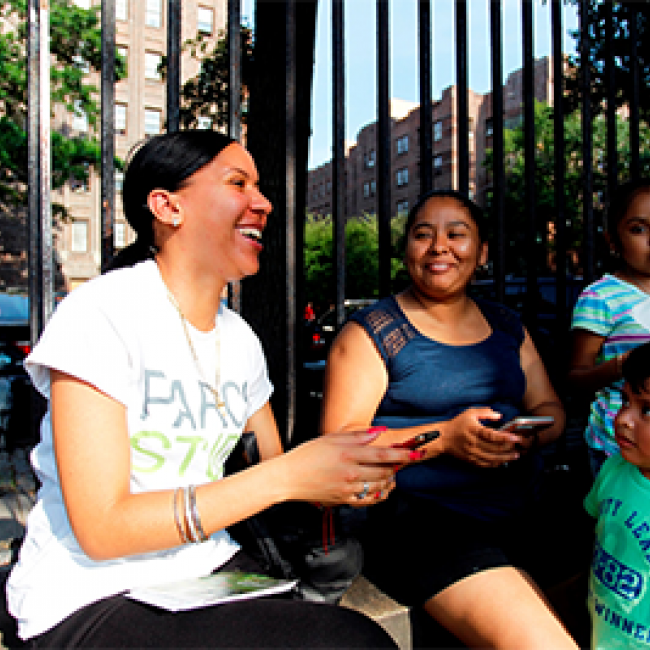Project Summary
The project team is examining the impact of New York City’s Community Parks Initiative (CPI), a citywide park redesign and renovation, on physical activity, park usage, psychosocial and mental health, and quality of life in underserved neighborhoods. They are following up on an existing cohort of parent-child dyads drawn from intervention vs. matched control neighborhoods from CPI. This natural experiment is a unique collaboration with NYC Parks and the city-led environmental change intervention is unprecedented in scale.
Research Questions/Aims
- Will children (3-8 y at baseline) show a greater positive change in overall physical activity in intervention relative to control neighborhoods?
- Will children show a significant increase in park usage, psychosocial wellbeing, and quality of life in intervention relative to control neighborhoods?
Actionability
- Inform future investments in health-oriented urban design programs and policies
- Contribute to discourse around the potential to address health disparities through built environment strategies
Results
The study builds on an ongoing natural experiment of 665 parent-child dyads in 13 intervention vs. 11 matched control park neighborhoods. The primary outcome is quality of life in children using a validated scale while the secondary outcome is objectively measured physical activity. Data will be analyzed by examining the change in outcomes pre-and post-park renovation in the intervention vs control groups. Longitudinal data will be analyzed using difference-in-difference and mixed models.
Outcomes
| Table 1. Key Measures | ||
| Construct | Variables (Sources) | |
| Park usage & improvements in park features, programs & quality (direct observations) Process/fidelity measures |
| |
| Pediatric quality of life Primary outcome | Children
| |
| Physical activity Secondary outcome | Parents
| Children
|
| Habitual park usage & engagement Mediator | Parents
| Children (Parent Report)
|
| Parent support practices for PA Mediator | Parents
| |
| Park satisfaction & perception Moderator | Parents
| |
| Psychosocial/mental health Secondary outcomes | Parents
| Children (Parent Report)
|
| Community well-being Secondary outcomes | Parents
| |
| Demographic information Covariates, moderators | Parents
| Children (Parent Report)
|
| Weather Covariates | Daily high & low temperatures, humidity & rain/sun conditions (PiLR EMA app) | |
Methodology
The study builds on an ongoing natural experiment of 665 parent-child dyads in 13 intervention vs. 11 matched control park neighborhoods. The primary outcome is analyzed using a difference in difference approach for repeated measures via mixed-effects models. Intervention and control groups are compared 1-2 years post-renovation on the difference in secondary outcomes, including child’s park usage, psychosocial health and quality of life.

CUNY Graduate School of Public Health and Health Policy
New York City Department of Parks and Recreation
University of North Carolina Chapel Hill, Gillings School of Global Public Health